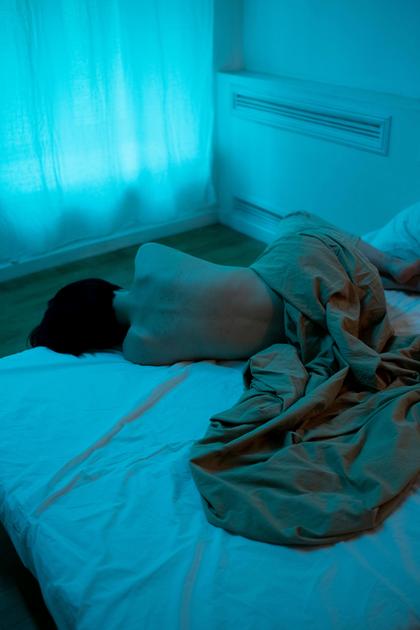Have you ever tried those popular sleep hacks that promise peaceful slumber but leave you wide awake? Many women have been led to believe these sleep strategies are the cure for insomnia, fatigue, or hormonal imbalances. In reality, science reveals that these methods often miss the mark for women over 30. Understanding the unique challenges we face can guide us towards effective solutions.
For those struggling with restless nights and lingering exhaustion, there’s hope. By focusing on what actually works, we can navigate through this maze of misinformation. Discover how many women are finding relief without heavy medications.
Why Common Sleep Hacks Fail Women
Many women, especially those over 30, have encountered a multitude of sleep hacks touted as miraculous solutions for better rest. Unfortunately, the reality is that most of these hacks fail to deliver effective results. This is largely because many sleep strategies are based on studies that primarily involve men. Women’s bodies are unique, and their sleep patterns often differ significantly from those of men.
For instance, the suggestion to maintain a strict sleep schedule can overlook the flexibility women often need due to varying obligations, such as work, family, and hormonal fluctuations. Additionally, common advice like consuming nightly herbal teas or practicing mindfulness might not address the complex hormonal interactions and stressors that uniquely affect women’s sleep.
The Science Behind Women’s Sleep Patterns
The science of sleep is rich and complex, particularly when viewed through the lens of women’s health. Research indicates that women often experience insomnia differently than men; they may awaken more frequently throughout the night. This phenomenon can stem from a variety of causes, including hormonal changes, stress levels, and lifestyle demands.
A study published in Sleep Medicine Reviews has shown that women tend to have lighter sleep compared to men, which can lead to increased wakefulness during the night and fragmented sleep patterns. Understanding these distinctions is crucial, as it highlights why traditional sleep hacks that work for men may simply not be applicable to women.
Hormonal Changes and Sleep Disruptions
Hormonal fluctuations that occur throughout a woman’s life have a profound effect on sleep quality. From adolescence to menopause, periods of hormonal changes can dramatically disrupt sleep. Conditions such as premenstrual syndrome (PMS) and polycystic ovarian syndrome (PCOS) are known to contribute to insomnia and poor sleep quality.
Furthermore, during perimenopause and menopause, women face a significant decline in estrogen levels, which can lead to sleep disturbances. The night sweats and hot flashes often associated with menopause can interrupt sleep, making it more challenging for women to fall—and stay—asleep. Sadly, many well-intended sleep solutions do not consider these hormonal factors and their impact on rest.
Sleep Hygiene: What Works and What Doesn’t
Good sleep hygiene practices usually emphasize the importance of a calming bedtime routine, such as taking warm baths or avoiding screen time. However, these suggestions can sometimes overlook the root problems that women face, particularly stress and anxiety. While establishing a routine is beneficial, it often needs to be tailored more specifically to women’s needs.
For example, instead of simply recommending to “unplug” from digital devices before bed, it may be more helpful to provide strategies for managing anxiety that arise from daily challenges before sleep time. Techniques such as gentle stretches, listening to soothing music, or engaging in guided relaxation can offer more specific support to women needing to recalibrate their minds.
The Role of Stress in Women’s Sleep
Stress is a significant player in sleep difficulties faced by many women. Balancing work, family, and personal life can create a pressure cooker of obligations, leading to elevated stress and, consequently, poor sleep. Knowing that women often bear the brunt of emotional labor in their relationships can add an extra layer to this stress.
Not only does stress hamper the ability to fall asleep, but it can also lead to sleep disorders such as insomnia and restless leg syndrome. Women may find themselves lying awake at night, their minds racing with worries. Recognizing and addressing the roots of stress can be the first step in reclaiming restful nights.
How Age Affects Sleep Quality in Women
As women age, their sleep patterns evolve, often worsening with each passing decade. While younger women may face sporadic sleepless nights, those over 30 may find that irregular sleep becomes a persistent issue. Sleep cycles change, and with it, the quality of this vital restorative process feeds directly into broader health issues.
A woman’s age can also correlate with changes in lifestyle, where increasing responsibilities may stack up, further compounding issues with sleep. However, age can also bring wisdom and insights into self-care. Many women find new ways to advocate for their sleep as they mature, learning to prioritize their health amidst the chaos.
Alternative Sleep Strategies to Consider
Given the complexities of women’s sleep, alternative strategies might be more beneficial than traditional hacks. Some women have found relief through adaptations in approach that focus on individual needs, such as:
- Yoga and Mindfulness: Incorporating gentle yoga or mindfulness practices into the day can help ease stress and prepare the mind for sleep.
- Adapted Sleep Environments: Creating a sleep space that feels safe and soothing can make a world of difference. Tailoring elements like lighting, temperature, and sound can lead to a feeling of security.
- Natural Remedies: Some women turn to herbal supplements that specifically help alleviate the hormonal and stress-based issues affecting their sleep.
Additionally, it remains crucial for women to communicate openly about their sleep challenges—whether in health circles or with loved ones. Explore here how many women are resolving this without heavy medications.
The Emotional Impact of Sleep Deprivation
The emotional toll of sleep deprivation can be severe, especially for women juggling various roles. Lack of sleep can exacerbate feelings of anxiety and lead to irritability. It is important to understand that emotional well-being and sleep are intimately connected.
When women experience insufficient sleep, it can tarnish their self-image and strip away joy from small moments. Recognizing these patterns and validating feelings can embolden women to seek change rather than suffer in silence.
Building a Personalized Sleep Routine
Creating a personalized sleep routine can feel challenging, especially amid daily pressures. However, establishing a routine that resonates personally can mean the world for restful sleep. The focus should be on incorporating the elements that truly nurture one’s spirit and mind.
This may include adjusting sleeping hours, setting aside time for quiet reflection, and ensuring that one prioritizes self-care measures during the day. Understanding one’s unique needs can lay the foundation for a more fulfilling sleep experience.
Empowering Women to Prioritize Sleep
It’s crucial for women to recognize the value of prioritizing sleep and its direct correlation to overall well-being. Empowerment comes from acknowledging one’s needs and advocating for better sleep and health habits. Each woman deserves the right to restorative nights and stress-free days. Taking small steps toward addressing sleep challenges can yield significant improvements over time.
Remember, you are not alone in this journey toward better sleep quality. Many women have walked this path before you and discovered effective ways to overcome the barriers. With simple, actionable steps, it is possible to enhance your sleep and reclaim restful nights — just as others have done. Every woman deserves this gift to themselves.







